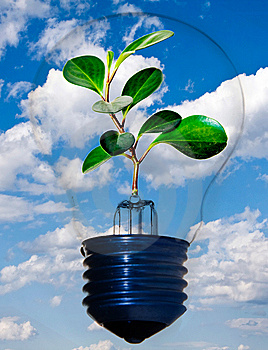Recent studies have established that if everybody acts as an average citizen in a high income Country, using and wasting energy and resources of an amount higher than what actually needed, we would need an extra 2,6 planets to satisfy all humankind requirements.
Each of us can contribute to energy saving making the environment a liveable place for future generations. It only requires simple actions, not implying any change in our daily life, most of which do not require any economic investments.
Little tricks, after all, able to limit in a remarkable way any energy waste and, at the same time, making our monthly power bills cheaper.
On average we consume most of the power for the heating (over half of the total). 25% for warm water, 11% for household appliances. The rest for cooking needs. It is possible, therefore, to avoid waste and save energy and money using in a more correct way the heating and air conditioning systems.
Home heating, as already said, is the main source of the household power consumption. The main useful trick is to set the heating system on an average temperature level during the day between 18° and 20° . We don’t need higher temperature levels and we can use warmer clothes rather than increase the heater temperature. Every degree more consumes 7% more energy.
Some practical advice
Air conditioning systems- Independent central heating systems
- Do not open your windows while the system is working: energy is wasted every time there is a sudden change in temperature;
- Block all heat leak through windows, doors, rolling shutter boxes;
- Use insulating materials, washers, expanded material panels and install double-glazed windows;
- Do not hang clothes to dry on top of the heaters or put radiator covers: they prevent warm air from circulating in the house;
- Keep the curtains opened;
- Do not exceed 6°-7° of difference between the outside and inside temperature: an inside temperature of 20°can be considered as optimal.
- Avoid facing the air conditioner directly towards the sun in order not to reduce its efficiency;
- If possible, provide yourself with a timer to time the heater for specific periods or only during some hours and for the time necessary to warm up the air or turn off the heater 1 hour before going out , using the heat absorbed by the walls;
- Carry out a proper maintenance to ensure the system efficiency.
Boiler
- Adjust the thermostat on 45° in the summer and 60° in winter;
- Install the system near the place where it is going to be used to avoid unnecessary loss of heat of warm water through long pipes;
- Check and clean periodically the serpentine winding to remove the calcareous deposits: they reduce heat transmission and increase consumption.
It is possible to avoid unnecessary energy waste also through a correct use of household appliances.
A television with the typical red light on, for example, can consume up to 20 watts per hour. If we multiply this data by all the household appliances and the hours, especially night hours, when they are in standby, the energy waste of a single household appears remarkable. When appliances such as televisions, high-fi systems, DVD players, computers, multiple adapters and any other appliances are not used it is good habit to turn the main switcher off. This way, the energy waste caused by the unused appliances is cut down.
Some useful advice
Washing machine
- Only use with a full load;
- Sort out the washing according to fabric and type of dirt and choose the programme correctly;
- For not very dirty washing avoid prewash;
- Opt for washing programmes with not very high temperatures;
Dishwashers
- Buy a class A dishwasher, matching the household needs and, if possible, connect the tap to warm water;
- Use dishwashers at full load and, when possible, for “quick” washes with cold water or using an energy saving programme, with small amounts of washing-up soap: consumption will be halved;
- Use the intensive cycle only with particularly dirty tableware;
- Remove from the programme the drying phase: opening the door and allowing air circulation obtain the same results with 45% less power.
TV - Hi-Fi - Computer
- Do not leave the red light on: turning the standby off you can save up to € 32.
Refrigerator –freezer
- Place the refrigerator far from heat sources, leaving a space between the wall and the back of it in order to allow air circulation;
- Place food in the refrigerator in a proper way and after it cooled down in order to avoid frost formation on the fridge walls;
- Adjust the thermostat on medium temperatures;
- Try to open the refrigerator’s door as less as possible and keep it open as short as possible to avoid cold loss;
- Check the good condition of the door’s washer;
- Defrost the refrigerator on a regular basis: frost increases consumption;
Electric oven and microwave oven
- During cooking try too open the door as less as possible;
- Turn off the oven shortly before the cooking time is over and use the heat accumulated;
- Clean the oven properly every time it is used.
Concerning the normal house lighting system it is also possible to be more cautious in order to avoid unnecessary energy waste.
Over the day the need to light up a space is not always the same. A well lit house doesn’t only depend on lamps and their power but on the proper access to natural light, on the walls colour and furniture, on the allocation of lighting spots, on the quality of the lighting source and its clean condition.
It would be useful to replace normal bulbs with fluorescent ones.
Fluorescent bulbs are a typical light source where visible light emission is not direct, it is not generated by incandescence, but it comes from a fluorescent material. Those bulbs are wrongly confused with neon lights, but actually their functioning is due to mercury and not neon. It allows a 80% power saving, especially in those spaces where an intense and long lasting lighting is needed, with annual savings on the power bill of € 65. Fluorescent bulbs not only consume less energy but their life cycle is longer than incandescent lights. It should be kept in mind that fluorescent lights are real electronic devices that shouldn’t be mixed with the rest of the waste, but handed in a separate collection to municipal services. The components can all be recycled and they are also dangerous.
Another simple action to cut down consumption is to regularly clean the bulbs surface from dust, smoke and kitchen grease enabling them to maintain their lighting intensity. Dirt can cut down a bulb’s lighting intensity by 20%, leading us to light up more bulbs and, consequently, waste energy.
Using intensity controls instead of normal switchers would help to cut down the energy consumption by one third. There are also automatic controls activating the lighting only when they sense the presence of people and then they switch off after people are gone.
Even through house furniture we could save some energy. Few examples:
- Carpets keep a room warmer and reduce heat loss;
- Clear curtains but no light allow to light up but reduce heat loss;
- Some plants, not too many, should also be kept in the house to favour oxygenation and air re cycling.
Environmental sustainability goes through the planning and implementation of residential or working units also, putting in place the energy saving rules.
Since 2008,in fact, to build new buildings for residential or professional purposes specific legal obligations must be respected and only through eco-sustainable interventions it is possible to obtain building certifications.
Since July 2009, moreover, also those willing to rent old houses must perform specific interventions to limit power energy waste.



